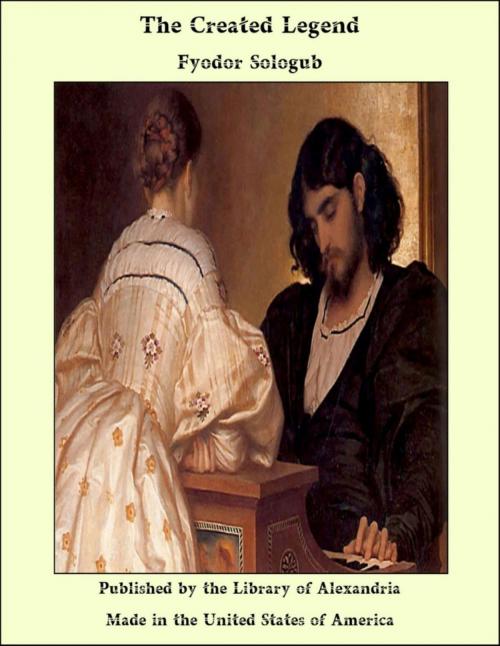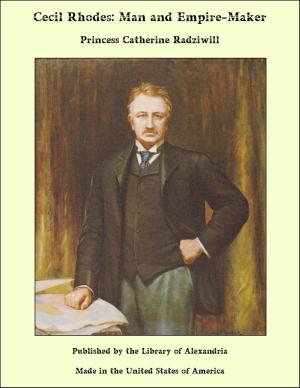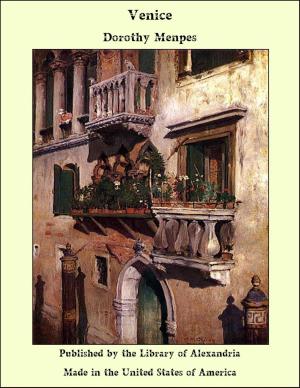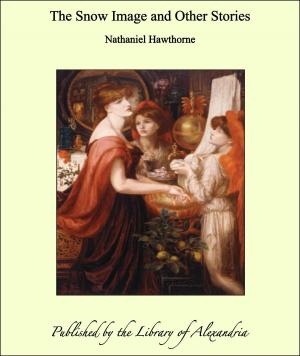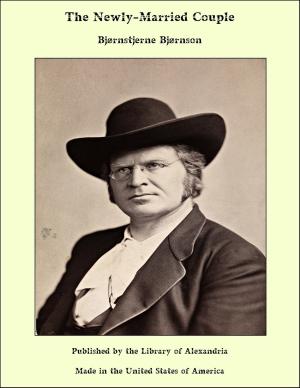| Author: | Fyodor Sologub | ISBN: | 9781465591944 |
| Publisher: | Library of Alexandria | Publication: | March 8, 2015 |
| Imprint: | Language: | English |
| Author: | Fyodor Sologub |
| ISBN: | 9781465591944 |
| Publisher: | Library of Alexandria |
| Publication: | March 8, 2015 |
| Imprint: | |
| Language: | English |
In "The Little Demon" Sologub has shown us how the evil within us peering out through our imagination makes all the world seem evil to us. In "The Created Legend," feeling perhaps the need of reacting from his morose creation Peredonov, the author has set himself the task of showing the reverse of the picture: how the imagination, no longer warped, but sensitized with beauty, is capable of creating a world of its own, legendary yet none the less real for the legend. The Russian title of the book is more descriptive of the author's intentions than an English translation will permit it to be. "Tvorimaya Legenda" actually means "The legend in the course of creation." The legend that Sologub has in mind is the active, eternally changing process of life, orderly and structural in spite of the external confusion. The author makes an effort to bring order out of apparent chaos by stripping life of its complex modern detail and reducing it to a few significant symbols, as in a rather more subtle "morality play." The modern novel is perhaps over-psychologized; eternal truths and eternal passions are perhaps too often lost sight of under the mass of unnecessary naturalistic detail. In this novel life passes by the author as a kind of dream, a dream within that nightmare Reality, a legend within that amorphousness called Life. And the nightmare and the dream, like a sensitive individual's ideas of the world as it is and as it ought to be, alternate here like moods. The author has expressed this changeableness of mood curiously by alternating a crudely realistic, deliberately naïve, sometimes journalese style with an extremely decorative, lyrical manner—this taxing the translator to the utmost in view of the urgency to translate the mood as well as the ideas.
In "The Little Demon" Sologub has shown us how the evil within us peering out through our imagination makes all the world seem evil to us. In "The Created Legend," feeling perhaps the need of reacting from his morose creation Peredonov, the author has set himself the task of showing the reverse of the picture: how the imagination, no longer warped, but sensitized with beauty, is capable of creating a world of its own, legendary yet none the less real for the legend. The Russian title of the book is more descriptive of the author's intentions than an English translation will permit it to be. "Tvorimaya Legenda" actually means "The legend in the course of creation." The legend that Sologub has in mind is the active, eternally changing process of life, orderly and structural in spite of the external confusion. The author makes an effort to bring order out of apparent chaos by stripping life of its complex modern detail and reducing it to a few significant symbols, as in a rather more subtle "morality play." The modern novel is perhaps over-psychologized; eternal truths and eternal passions are perhaps too often lost sight of under the mass of unnecessary naturalistic detail. In this novel life passes by the author as a kind of dream, a dream within that nightmare Reality, a legend within that amorphousness called Life. And the nightmare and the dream, like a sensitive individual's ideas of the world as it is and as it ought to be, alternate here like moods. The author has expressed this changeableness of mood curiously by alternating a crudely realistic, deliberately naïve, sometimes journalese style with an extremely decorative, lyrical manner—this taxing the translator to the utmost in view of the urgency to translate the mood as well as the ideas.
